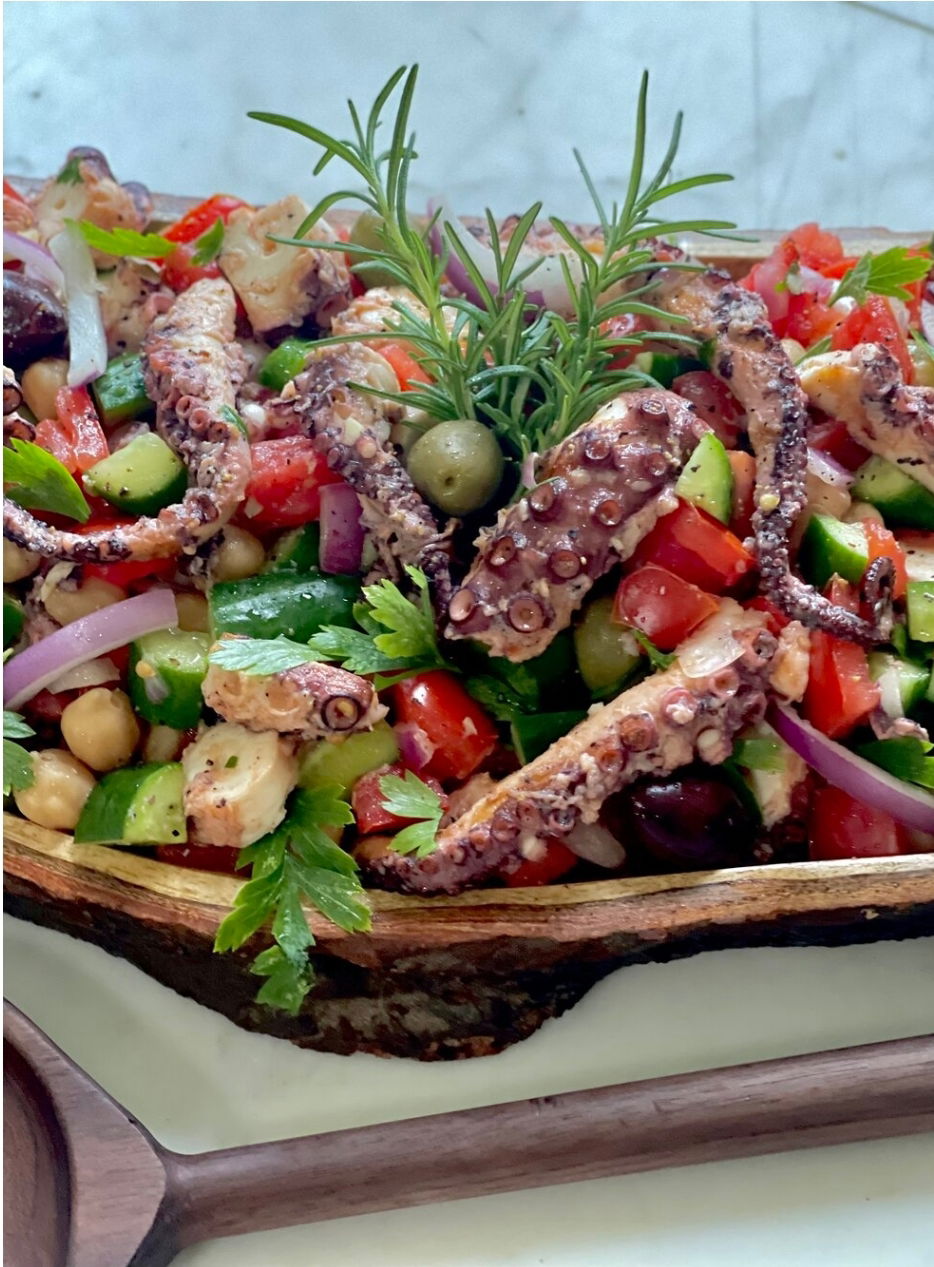Croatian Octopus Salad (or Salata od Hobotnice)

Octopus salad is a beloved dish, especially popular along the Dalmatian coast. It’s typically made with tender octopus, fresh vegetables, olive oil, and a tangy vinaigrette. Here's a traditional recipe for this refreshing and flavourful salad:
Ingredients:
- 1 kg (2.2 lbs) octopus (fresh or thawed)
- 2-3 medium potatoes, peeled and boiled (optional for a more hearty version)
- 1 red onion, thinly sliced
- 2-3 cloves garlic, minced
- 1/4 cup extra virgin olive oil
- 1/4 cup white wine vinegar (or lemon juice for a different flavour)
- 1 teaspoon dried oregano
- Salt and pepper, to taste
- 1 handful of fresh parsley, chopped
- Lemon wedges, for serving
Instructions:
- Prepare the Octopus:
- Clean the octopus by removing the beak and eyes, if necessary. You can ask your fishmonger to do this for you.
- Place the octopus in a large pot with water (no salt), bring to a boil, and then simmer for about 45 minutes to 1 hour, until the octopus becomes tender. The cooking time can vary depending on the size of the octopus, but it should be fork-tender. Alternatively, you can cook it in a pressure cooker to save time.
- Cool and Chop:
- After cooking, remove the octopus from the pot and let it cool. Once it’s cool enough to handle, chop it into bite-sized pieces, discarding the head and any tough parts of the tentacles.
- Prepare the Vegetables:
- Boil the potatoes (if using) until tender but firm, then peel and chop them into small cubes.
- Thinly slice the red onion and mince the garlic.
- Mix the Salad:
- In a large bowl, combine the chopped octopus, boiled potatoes, red onion, and minced garlic.
- Add the olive oil, white wine vinegar (or lemon juice), dried oregano, salt, and pepper. Toss everything gently to combine, making sure the ingredients are well-coated with the dressing.
- Garnish and Serve:
- Sprinkle the chopped fresh parsley over the top of the salad for added colour and freshness.
- Serve with lemon wedges on the side for an extra burst of citrus.
Serving Suggestions:
- This salad is best served chilled or at room temperature, and it's typically enjoyed as a starter or light main course. It’s often paired with a glass of Croatian white wine, such as Pošip or Malvazija, to complement the fresh flavours of the dish.